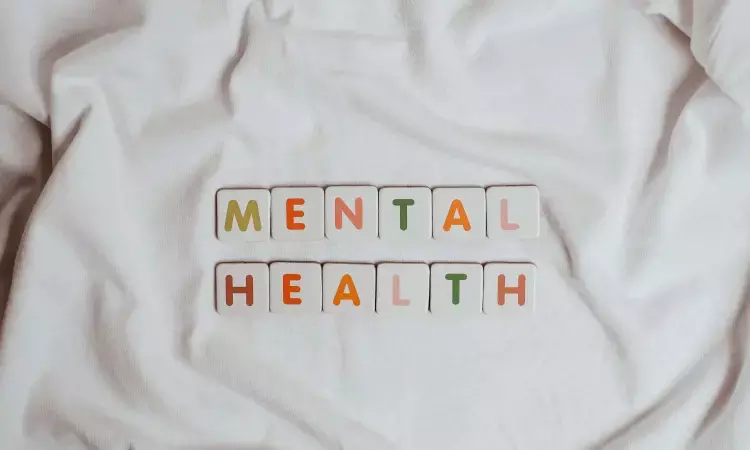- Home
- Medical news & Guidelines
- Anesthesiology
- Cardiology and CTVS
- Critical Care
- Dentistry
- Dermatology
- Diabetes and Endocrinology
- ENT
- Gastroenterology
- Medicine
- Nephrology
- Neurology
- Obstretics-Gynaecology
- Oncology
- Ophthalmology
- Orthopaedics
- Pediatrics-Neonatology
- Psychiatry
- Pulmonology
- Radiology
- Surgery
- Urology
- Laboratory Medicine
- Diet
- Nursing
- Paramedical
- Physiotherapy
- Health news
- Fact Check
- Bone Health Fact Check
- Brain Health Fact Check
- Cancer Related Fact Check
- Child Care Fact Check
- Dental and oral health fact check
- Diabetes and metabolic health fact check
- Diet and Nutrition Fact Check
- Eye and ENT Care Fact Check
- Fitness fact check
- Gut health fact check
- Heart health fact check
- Kidney health fact check
- Medical education fact check
- Men's health fact check
- Respiratory fact check
- Skin and hair care fact check
- Vaccine and Immunization fact check
- Women's health fact check
- AYUSH
- State News
- Andaman and Nicobar Islands
- Andhra Pradesh
- Arunachal Pradesh
- Assam
- Bihar
- Chandigarh
- Chattisgarh
- Dadra and Nagar Haveli
- Daman and Diu
- Delhi
- Goa
- Gujarat
- Haryana
- Himachal Pradesh
- Jammu & Kashmir
- Jharkhand
- Karnataka
- Kerala
- Ladakh
- Lakshadweep
- Madhya Pradesh
- Maharashtra
- Manipur
- Meghalaya
- Mizoram
- Nagaland
- Odisha
- Puducherry
- Punjab
- Rajasthan
- Sikkim
- Tamil Nadu
- Telangana
- Tripura
- Uttar Pradesh
- Uttrakhand
- West Bengal
- Medical Education
- Industry
Regular exercise improves mental health in adolescents and help with behavioural difficulties

UK: Regular physical activity is associated with decreased depressive symptoms and emotional difficulties in adolescents, a recent study published in Mental Health and Physical Activity has shown.
The findings suggest that physical moderate-vigorous intensity physical activity (MVPA) may have a small protective influence on adolescent mental health and help with behavioural difficulties.
Researchers from the Universities of Edinburgh, Strathclyde, Bristol, and Georgia in the United States showed that engaging in regular moderate to vigorous physical activity at age 11 was associated with better mental health between the ages of 11 and 13.
In young people, physical activity was also associated with reduced hyperactivity and behavioural problems, such as losing temper, fighting with other children, lying, and stealing.
The researchers explored data from the Children of the 90s study (also known as the Avon Longitudinal Study of Parents and Children; ALSPAC). They looked at the physical activity levels of 4755 11-year-olds, which was measured using devices.
The devices recorded levels of moderate physical activity-typically, defined as brisk walking or cycling and vigorous activity which boosts heart rate and breathing, such as aerobic dancing, jogging or swimming.
The young people and their parents reported their levels of depressive symptoms from age 11 at age 13 years. Participants’ parents and teachers were also quizzed about the young people’s general behaviour and emotional difficulties.
In analysing the impact of moderate to vigorous exercise on young people’s mental health and behaviour, the team also considered factors such as age, sex and socio-economic status.
They found that higher moderate or intense physical activity had a small but detectable association with decreases in depressive symptoms and emotional difficulties.
The study found that regular exercise had a small but detectable association with reduced behavioural problems, even after controlling for other possible influences.
The findings suggest regular moderate and intense physical activity may have a small protective influence on mental health in early adolescents, researchers say.
Dr Josie Booth, of the University of Edinburgh’s Moray House School of Education and Sport, said: “This study adds to the increasing evidence base about how important physical activity is for all aspects of young people’s development-it can help them feel better, and do better at school. Supporting young people to lead healthy, active lives should be prioritised.”
Researchers say the study is the first to offer a comprehensive approach to examining mental health and exercise in young people.
Professor John Reilly at the University of Strathclyde, said: “While it might seem obvious that physical activity improves mental health, the evidence for such a benefit in children and young people has been scarce, so the study findings are important. The findings are also important because levels of moderate-to-vigorous intensity activity globally are so low in pre-teens globally-less than a third achieve the 60 minutes per day recommended by the WHO and UK Health Departments.”
Reference:
Josephine N. Booth, Andy R. Ness, Carol Joinson, Phillip D. Tomporowski, James M.E. Boyle, Sam D. Leary, John J. Reilly, Associations between physical activity and mental health and behaviour in early adolescence, Mental Health and Physical Activity, https://doi.org/10.1016/j.mhpa.2022.100497.
Dr Kamal Kant Kohli-MBBS, DTCD- a chest specialist with more than 30 years of practice and a flair for writing clinical articles, Dr Kamal Kant Kohli joined Medical Dialogues as a Chief Editor of Medical News. Besides writing articles, as an editor, he proofreads and verifies all the medical content published on Medical Dialogues including those coming from journals, studies,medical conferences,guidelines etc. Email: drkohli@medicaldialogues.in. Contact no. 011-43720751


